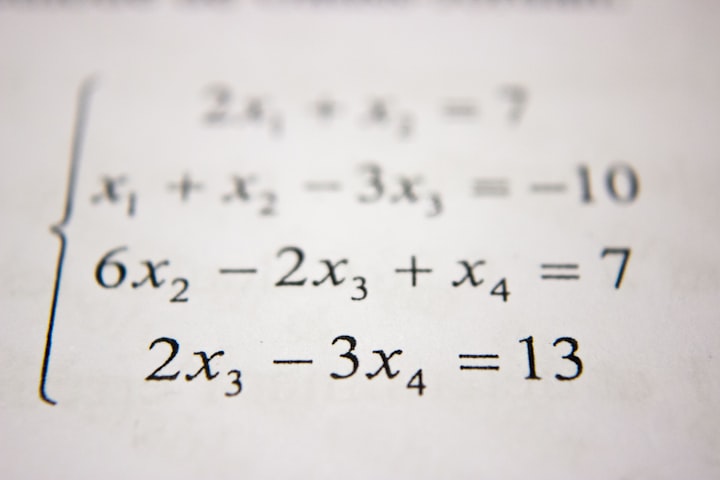Arithmetic Operations
Exploring the Fundamentals of Mathematical Calculation

Arithmetic operations are the fundamental building blocks of mathematics, providing the essential tools for working with numbers, solving problems, and making calculations. From addition and subtraction to multiplication and division, these operations allow us to manipulate quantities, analyze data, and explore the relationships between numbers. By mastering arithmetic operations, individuals develop a solid foundation for understanding and engaging with more complex mathematical concepts. In this description, we will delve into the four primary arithmetic operations—addition, subtraction, multiplication, and division—and explore their significance in mathematical thinking and problem-solving. Whether you're a student, professional, or simply someone looking to enhance your numerical skills, understanding arithmetic operations is key to unlocking the power of mathematics in your everyday life.
Arithmetic operations form the cornerstone of mathematics, providing the fundamental tools for performing calculations and solving mathematical problems. These operations include addition, subtraction, multiplication, and division. By mastering these operations, individuals can confidently work with numbers, analyze data, and make accurate calculations in various real-life scenarios.

In this comprehensive description, we will explore the concepts of addition, subtraction, multiplication, and division, providing clear explanations and practical examples to help you develop a strong understanding of these fundamental arithmetic operations. Mastering these operations will empower you to confidently navigate the world of numbers and mathematical calculations.
Addition:
Addition is the process of combining two or more numbers to find their sum. It represents the concept of "putting together" or "joining." For example, adding 2 and 3 gives a sum of 5. Addition is not limited to whole numbers and can be applied to fractions, decimals, and even variables in algebraic expressions.

Subtraction:
Subtraction involves finding the difference between two numbers. It represents the concept of "taking away" or "removing." By subtracting one number from another, we determine how much is left or how much has changed. For example, subtracting 5 from 9 leaves a difference of 4. Subtraction is also applicable to various number formats, including decimals and negative numbers.

Multiplication:
Multiplication is the process of repeated addition or combining equal groups to find the total. It represents the concept of "repeated addition" or "scaling." Multiplication allows us to efficiently determine the total when a number is multiplied by another. For example, multiplying 3 by 4 gives a product of 12. Multiplication is crucial for scaling quantities, calculating areas and volumes, and solving problems involving rates and proportions.

Division:
Division involves dividing a number into equal parts or determining how many times one number is contained within another. It represents the concept of "sharing" or "partitioning." Division allows us to distribute quantities equally or find the ratio between two numbers. For example, dividing 12 by 3 yields a quotient of 4, indicating that 12 can be divided into four equal parts of 3. Division is essential for calculating rates, averages, fractions, and proportions.

Arithmetic operations serve as the building blocks for more advanced mathematical concepts and problem-solving techniques. They are used in various fields, including finance, science, engineering, and everyday life. Additionally, arithmetic operations lay the foundation for algebraic manipulation, geometric calculations, statistical analysis, and calculus.
Through practice, individuals can develop fluency and efficiency in performing arithmetic operations, allowing for accurate and swift calculations. Proficiency in these operations enables individuals to analyze numerical data, solve problems, make informed decisions, and interpret mathematical information effectively.
Understanding and mastering arithmetic operations are essential for building a strong mathematical foundation and nurturing critical thinking skills. Whether solving basic calculations or tackling complex mathematical problems, a solid grasp of arithmetic operations is vital for success in the world of mathematics and beyond.
About the Creator
Shamily Elangovan
I am a visionary poet, weaves words into intricate tapestries of emotion and imagination.






Comments
There are no comments for this story
Be the first to respond and start the conversation.